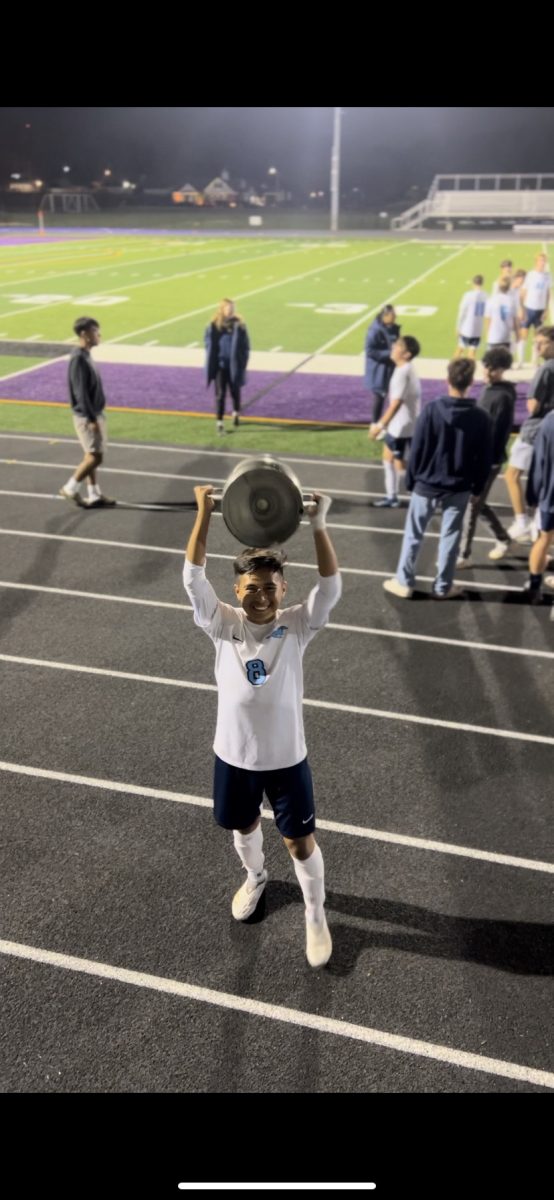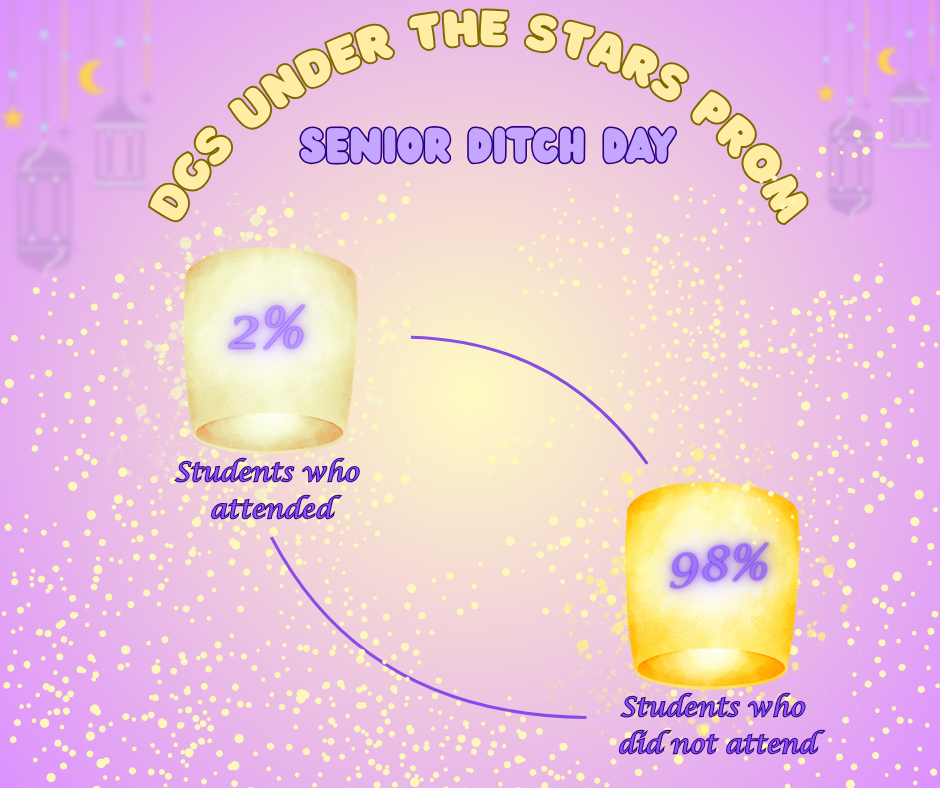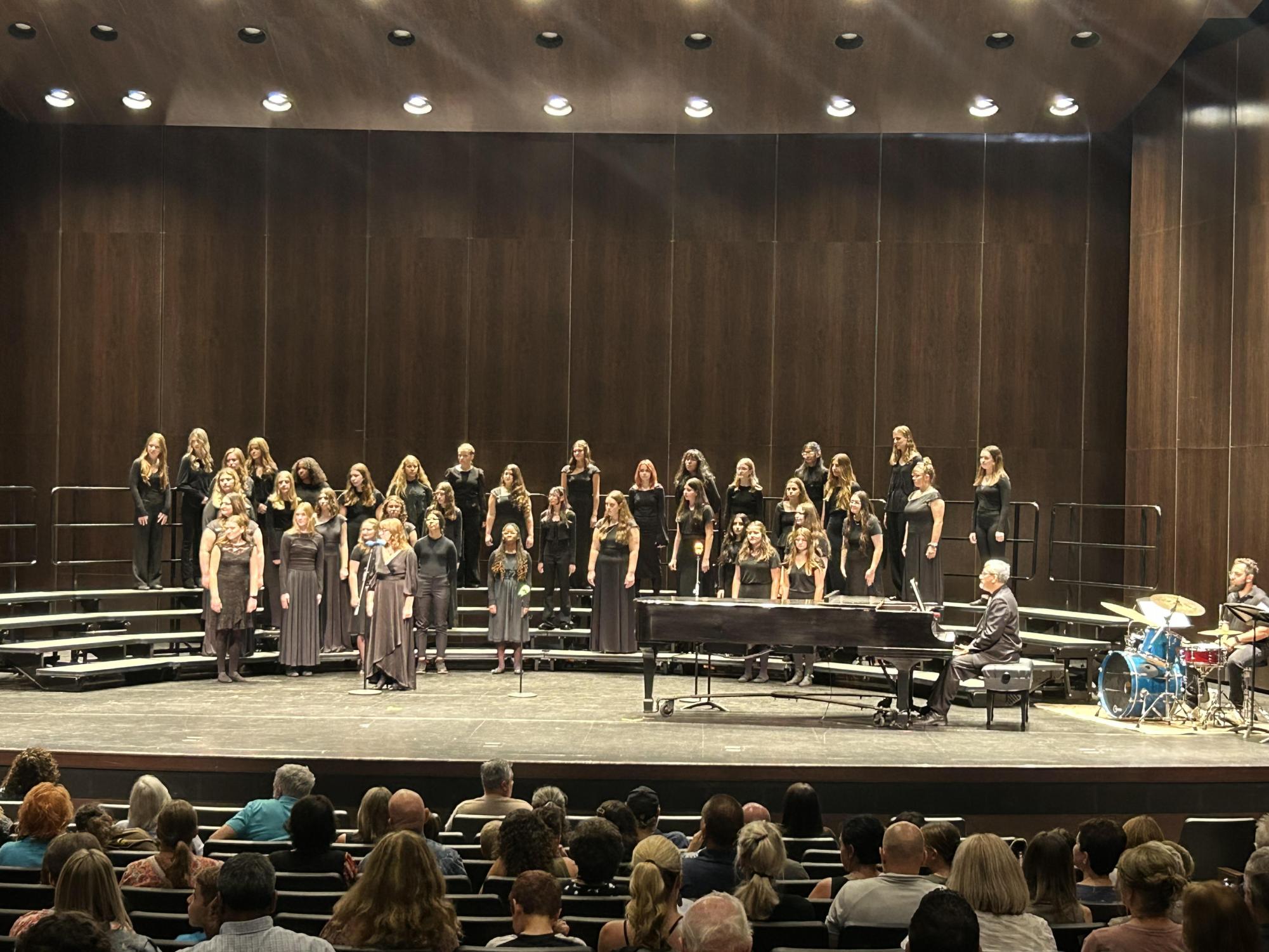
Music serves as therapy for students and staff alike
Walking into any sort of musical space can just seem like a regular, boring elective students have to take. Students slump down into their seats and pick up the shared classroom guitars, hide their phone on the music stand and prepare for a long class of texting their friends. However, for some staff and students these electives aren’t just a graduation requirement, but an escape from reality.
When one listens to or makes music, it is proven that it increases blood flow throughout the body, but especially to the brain with emotional benefits such as better focus. More info exploring mood and music can be found at Pfizer.com.
Music physically helps the brain to focus more and be more productive. At a cognitive level, music can have proven benefits for the developing minds of young adults.
Cognitive benefits are seen through music at DGS. From in school classes to teachers pursuing their passions, music is a hidden escape for many people. Junior Stacia Thames knows the long term role choir is in her life.
“Music is so important to me. It definitely builds character. Learning notes, rhythm and dynamics, it teaches you more than just the song. These things teach you how to be patient and to really pay attention to more than just yourself but other people. When you sing together it’s ‘1 voice, 1 sound’ because you have been in unison with one another. Even if you are harmonizing with other vocal parts,” Thames said.
DGS offers many opportunities for students like Thames to explore and take a break from the stress of school. Experiences like choir, private lessons and audition based groups give students who utilize the arts a way to express themselves.
Senior Lucas Ciocan is involved with many different musical groups inside and outside of school. His love for playing the saxophone started in 6th grade when he decided to take some summer classes. Similar to singing, the saxophone presents itself in a way for Ciocan to clear his mind.
“I love the options of techniques, methods, and styles I can use to communicate ideas and emotions. It’s also just a satisfying sound…a good practice session will put me in a “flow” state, where I completely forget about any worries and channel all my energy to the music,” Ciocan said.
This “flow” state is often referred to in music when a musician reaches their best performance levels. It can lead to a musician’s best work as an artist in addition to the feeling of accomplishment. It makes the music much more enjoyable for listeners as well as the one making the music.
Not only do students have passion and use for music, but DGS staff as well. Teaching music is one way that adults can be exposed to the benefits of music while making a career out of it. Choir director Dr. Ricardo Pedroza is the accompanist as well as teaches choir while following his own philosophy of music impacting people as humans.
“Creating and preparing music performances undoubtedly make us more sensitive as human beings. Music makes us feel and think. It gives us a sense of accomplishment, pride and meaning in our lives. Performing music involves not only feelings and emotions, but also controlling pitch (controlling frequency, wavelength and amplitude of sound waves) and duration rhythm, which involves mental mathematical calculations in real time,” Pedroza said.
Teaching the next generation to pass down their knowledge of music is a way for faculty who are so passionate about music to stay connected. Working with kids is a common way that music lovers share their passion.
Vocal coach Shanan D’Agostino teaches young musicians about music through private lessons. Aside from learning in the classroom among peers or making music with a large ensemble, private lessons are a way students and staff can improve their talents individually as well as spend time doing what they like to do.
“I think seeing my students in their piano recitals and seeing how happy they were to play the simplest melodies for their families and it would just light up their eyes. It’s really cool to see my students get excited about music as much as I do,” D’Agostino said.

Whether it be inside the classroom under instruction or independently, music is a presence to those who need it during their day in many different ways. Reaching the state of a great mental and performance state is accessible through school resources.
“There are so many benefits that we get from experiencing music. I believe music and arts in general, are vital and necessary in the development of a human being,” Pedroza said.
Music provides adults and kids alike with ways to explore or escape reality- whatever is needed most for them. Through groups and individual goals, school can be an opportunity for passionate music makers to find their “flow” in the chaos of high school.
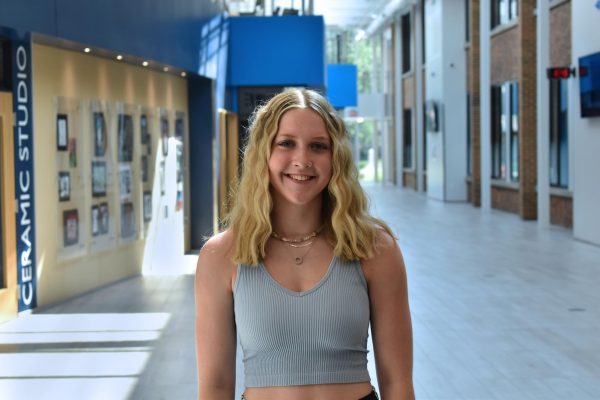




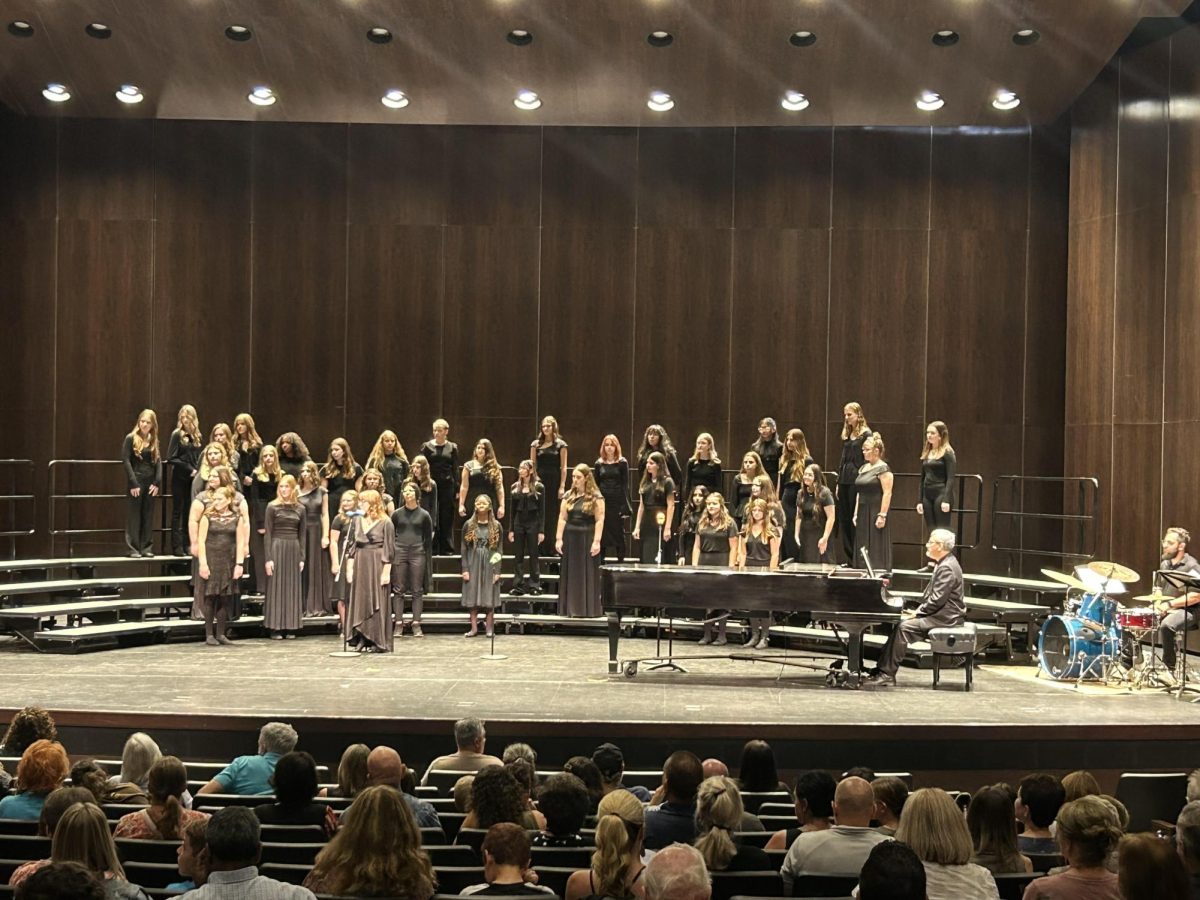
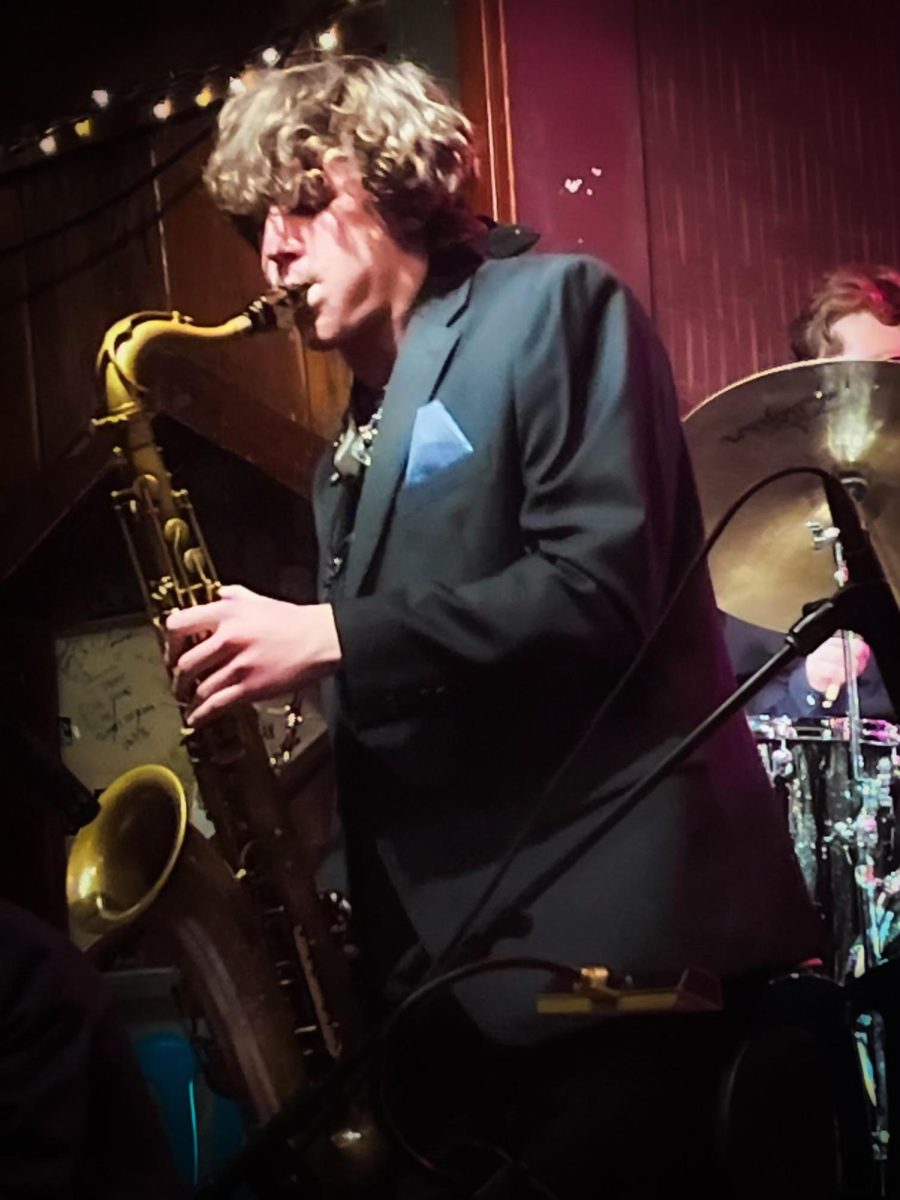


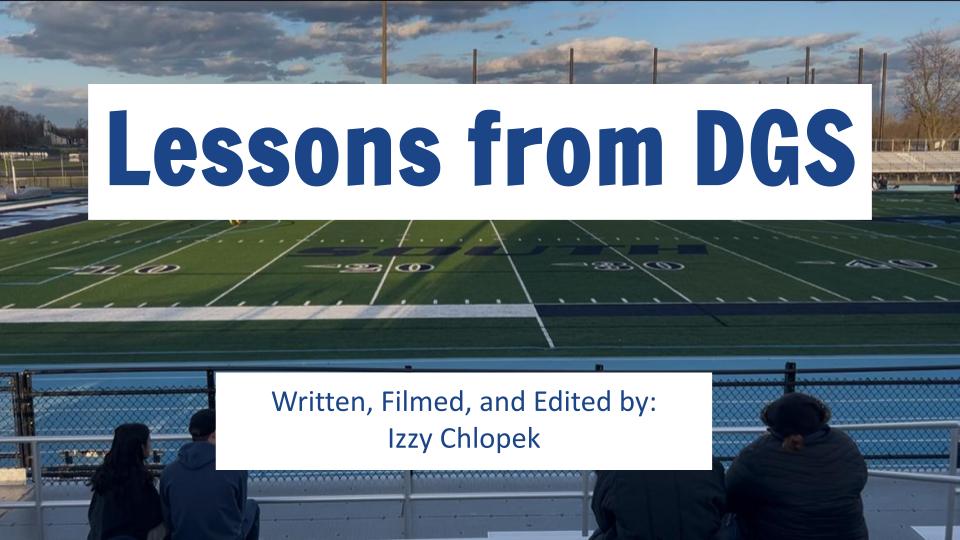

![In this documentary, you will learn how violins are made. All music is in the public domain:
Music Produced by Deutsche Grammophon, Medici TV, Heifetz Institute, and Queen Elisabeth competition
Paganini, Caprice No. 24 [Song recorded by Jasha Heifetz]. Heifetz Institute. (Original work published 1817)
Paganini, Caprice No. 24 [Song recorded by Jasha Heifetz]. Heifetz Institute. (Original work published 1817)
Bartok, Sonata No.1 for Solo Violin [Song recorded by Kevin Zhu]. Queen Elizabeth Competition. (Original work published 1944)
Paganini, Violin Concerto no. 1 [Song recorded by Philippe Hirshhorn]. Queen Elizabeth Competition. (Original work published 1819-1825)](https://southblueprint.com/wp-content/uploads/2025/05/Screenshot-2025-05-07-122429-1200x668.png)





